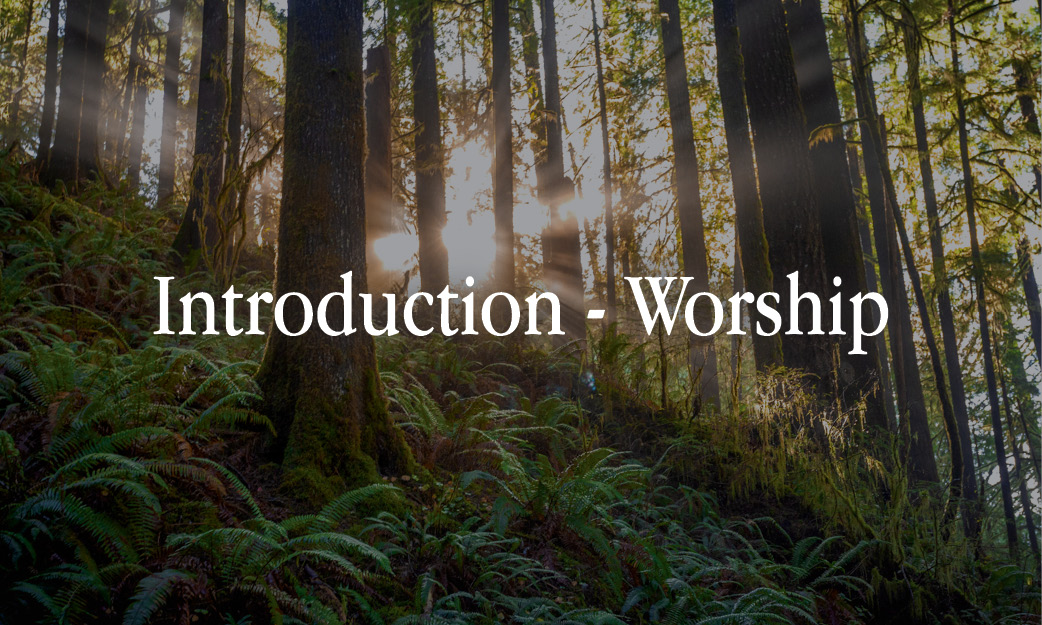Principles of Worship and Music in Worship
1. The Regulative Principle of Worship – We may worship God only in the manner He has prescribed in His Word, by direct commandment, obligatory example or good and necessary deduction.
a. The positive requirement of the second commandment, dealing with how we worship, is keep my commandments.
b. Deut. 12:30-32, and after they have been destroyed before you, be careful not to be ensnared by inquiring about their gods, saying, “How do these nations serve their gods? We will do the same.” You must not worship the Lord your God in their way, because in worshiping their gods, they do all kinds of detestable things the Lord hates. They even burn their sons and daughters in the fire as sacrifices to their gods. See that you do all I command you; do not add to it or take away from it.
c. It is our conviction that the fundamental principle at stake is that God’s Word, not our own desires nor the culture around us, must shape our worship.
2. The Dialogical Nature of Public Worship – Worship is a holy dialogue between God and His people. God calls us to worship and extends His greeting, we respond with songs of praise. He speaks His law, we confess our sins. He assures us of His grace and pardon, we give thanks in prayer and song. He speaks His Word, we respond with songs, prayers and offerings. He gives His benediction, we respond with praise and our Amen. Because of the dialogical nature of worship, we seek to avoid in worship “horizontal” communication or anything approaching the nature of a performance where the gifts of some are on display and the rest of the congregation takes the role of an audience.
3. The Corporate Nature of Public Worship – In the Old Testament period only the tribe of Levi was allowed to enter into the presence of God. The Levites took the sacrifices from the people and offered them up to God. It was also the Levites who sang in the presence of God, David told the leaders of the Levites to appoint their brothers as singers to sing joyful songs, accompanied by musical instruments: lyres, harps and cymbals, 1 Chrn. 15:16. However, now, in the age of the Spirit (since Pentecost), all God’s people share in Christ’s priestly anointing. Therefore we may all come into the presence of God in formal worship. Now everyone may offer songs of praise to God in the assembly of the saints in the presence of God. When the medieval Roman church violated this principle by limiting all singing to choirs, the Reformers of the 16th century made the elimination of choirs one of their major changes, replacing them with congregational singing. Much of the modern confusion about worship is due to the confusion of public and private piety with corporate worship. Reformed worship is not a concert, revival meeting or a private prayer circle. In Biblical worship, God speaks to his gathered people and they reply corporately. Therefore there are certain music forms which, while perfectly appropriate to private settings or public concerts, are inappropriate in public worship in which God's people are gathered in His presence to dialogue with Him.
4. Instruments in Worship – Instruments in worship are for the purpose of supporting congregational singing.
a. In Old Testament temple worship instruments were for the accompaniment of singing: The trumpeters and singers joined in unison, as with one voice, to give praise and thanks to the Lord. Accompanied by trumpets, cymbals and other instruments, they raised their voices in praise to the Lord and sang: “He is good; his love endures forever.” 2 Chrn. 5: 13.
b. The New Testament emphasizes that public, corporate worship should edify the mind with intelligent words that can be understood by all: If you are praising God with your spirit, how can one who finds himself among those who do not understand say “Amen” to your thanksgiving, since he does not know what you are saying? You may be giving thanks well enough, but the other man is not edified. I thank God that I speak in tongues more than all of you. But in the church I would rather speak five intelligible words to instruct others than ten thousand words in a tongue. 1 Cor. 14:16-19.
c. Though instrumental music by itself can show forth the glory of God and is an appropriate way to bring praise to God, both for the beauty of the music and the talents He gives to musicians, it does not fit the pattern of formal, corporate worship as an intelligent dialogue between God and His people. Instrumental praise is more appropriate for contexts other than formal, corporate worship.
Various Applications at Grace URC of the Above Principles
1. Congregational singing is the primary means of worshipping God with music in the worship service. We do not have choirs, solos, duets or other vocal groups or instrumental performances during our worship services.
2. When a request is received from a group or individual to sing for the congregation this should take place outside the time of corporate worship. That is before the call to worship or after the benediction. These selections should be approved in advance by the Consistory. These numbers can be an excellent means of preparation for worship, or a reflection of witness after worship.
3. The song service occurs outside the formal, corporate worship service, coming before the call to worship. Therefore, while the Consistory regulates the song service, the principles of corporate worship are not applied to it. For example, while only office bearers and men training for the ministry of the Word may lead in corporate worship, others, who are not ordained, are allowed to lead the song service. Leading a song service is not a position of authority in the church.
4. Instrumental music in the worship service is permitted during the offertory but we encourage the musician to play music that brings to mind the words of familiar hymns and avoid flamboyant music that draws more attention to the talent of the musician than to the theme of the music.
5. Multiple instruments may be played during the worship services to support congregational singing, such as piano and trumpets, piano and strings or other combinations, provided that congregational singing is enhanced, not overwhelmed, by the instruments.
6. Though the prelude and postlude fall outside the formal worship service, like the offertory, we encourage music that brings to mind familiar gospel themes and not music which is flamboyant or performance oriented. This is a subjective judgment and we trust our musicians to exercise their own judgment in the selection of music. Musicians do not need to have their selections approved in advance. The elders will only intervene if a musician shows consistently poor judgment in the selection of music. The prelude and postlude are not a time for inexperienced musicians to gain recital experience.
The application of worship principles in the life of a church is not always easy and straightforward. We do not profess to have applied them perfectly in our congregation. Some decisions are a “judgment call” where Christians agreeing in principle may not agree in every application of principle. Just as Christian school administrators may all agree that student dress should conform to the standards of Christian modesty and decency and not distract from the educational mission of the school, yet disagree on what T-shirt messages are acceptable, so churches may apply the above principles differently. When Christians disagree in such matters, we must be patient with one another and respect the authority of those whom God has placed over us in the Lord.








